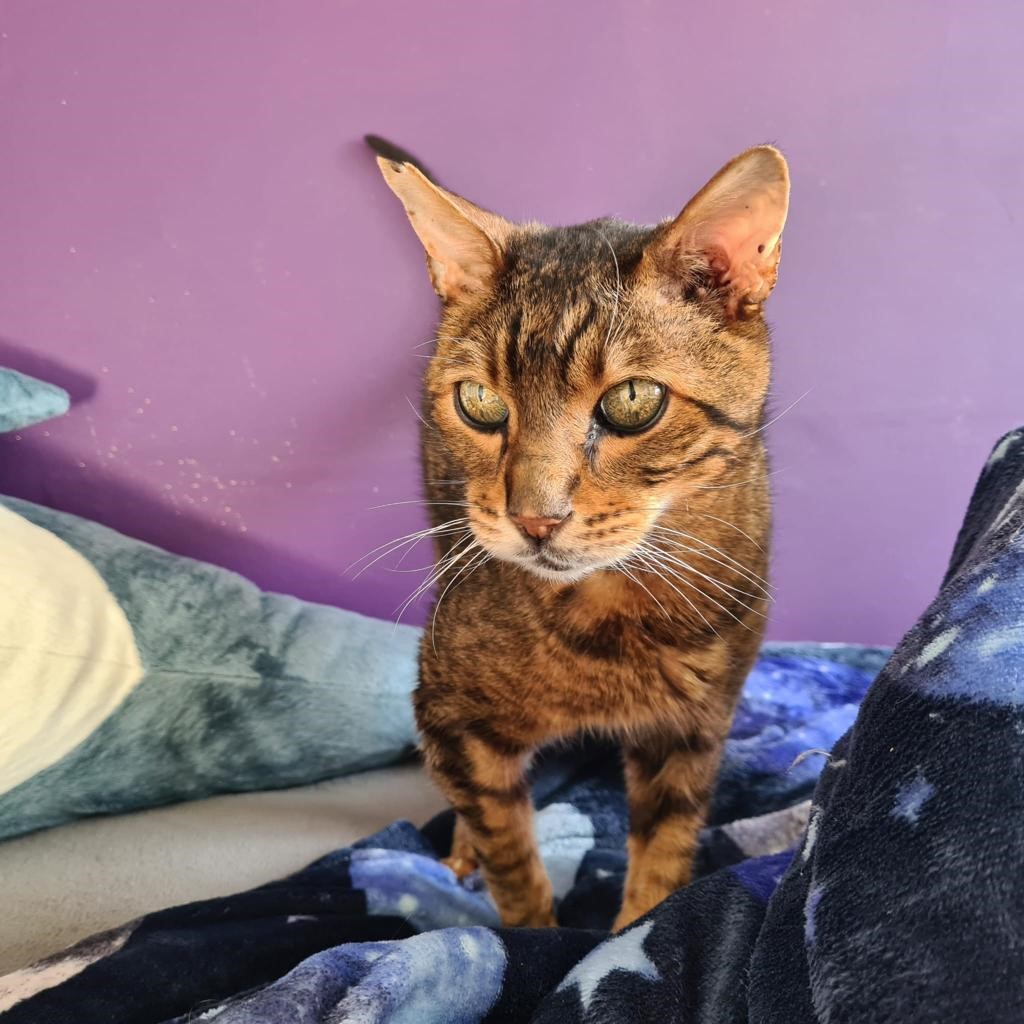World’s first study by RVC investigates blood pressure and kidney disease in domestic cats
The Royal Veterinary College (RVC) has conducted the world’s first genome wide association study (GWAS) specifically evaluating renal function and blood pressure traits in domestic cats. Studying a large population of cats, the findings pave the way to generating new and important information about the development of the complex conditions, chronic kidney disease (CKD) and hypertension (HTN) in cats.

CKD is extremely common in ageing cats with about 30 per cent aged 10 years or older having the condition. Clinical signs include weight loss, poor appetite, lethargy and increased thirst and urination. Based on the estimated number of pet cats and their longevity, approximately 600,000 cats in the UK are suspected to have CKD. About 40 per cent of these cats will also have high blood pressure (hypertension) which can have further implications on eyesight, the nervous system and heart.
The research team was led by principal investigator at the RVC, Dr Rosanne Jepson, alongside joint first author from Queen Mary University of London, Dr Helen Warren, and Professor Patricia Munroe. The team examined the archives of 1,022 domestic cats seen at both the RVC’s Beaumont Sainsbury Animal Hospital and Bow PDSA Pet Hospital since 1992, specifically looking for genetic associations with CKD and HTN using a genome-wide association study (GWAS) approach.
The GWAS approach used a special feline array to characterise over 63,000 genetic differences across the feline genome. The team examined the influence of different genes on these complex disease traits which may point to new ways of treatment as the pathways and proteins controlled by these genes can indicate novel mechanisms for disease development.
Additionally, the study highlighted the potential of using this approach to investigate complex disease conditions in the future. This study method has historically been used for rarer and breed-specific conditions where single genetic mutations might be occurring. However, the findings show it could now be used to generate new and important information about common and complex diseases which are likely to be the result of genetic, lifestyle and environmental risks.
Rosanne Jepson, Principal Author of the paper and Associate Professor in Small Animal Internal Medicine at the RVC, said:
“This was an exciting opportunity to explore potential genetic influences on the development of chronic kidney disease and systemic hypertension in cats, collaborating with key opinion leaders who work and have published extensively in this field in human medicine.
“These conditions are complex - meaning that there are many factors relating to genetics, lifestyle and environment that cumulatively determine whether an individual may develop either CKD or hypertension in their lifetime.
“This study has shown us, as proof of concept, that large scale genomic studies will be important for understanding the pathogenesis of such complex disease conditions and may help to identify novel pathways as targets for diagnosis and management in the future.”
The research was funded by Pet Plan Charitable Trust, Foundation for Feline Renal Research and the Morris Animal Foundation.
Notes to Editors
Read the full article here: https://www.nature.com/articles/s41598-022-05494-3
For media enquiries, please contact:
- Jasmin De Vivo jasmin.devivo@plmr.co.uk or rvc@plmr.co.uk
- Press Line: 0800 368 9520
About the RVC
- The RVC is the UK's largest and longest established independent veterinary school and is a Member Institution of the University of London.
- It is one of the few veterinary schools in the world that hold accreditations from the RCVS in the UK (with reciprocal recognition from the AVBC for Australasia, the VCI for Ireland and the SAVC for South Africa), the EAEVE in the EU, and the AVMA in the USA and Canada.
- The RVC is ranked as the top veterinary school in the world in line with the QS World University Rankings by subject, 2021.
- The RVC offers undergraduate and postgraduate programmes in veterinary medicine, veterinary nursing and biological sciences.
- In 2017, the RVC received a Gold award from the Teaching Excellence Framework (TEF) – the highest rating a university can receive.
- A research led institution with 79% of its research rated as internationally excellent or world class in the Research Excellence Framework 2014.
- The RVC provides animal owners and the veterinary profession with access to expert veterinary care and advice through its teaching hospitals and first opinion practices in London and Hertfordshire.
You may also be interested in:
-
RVC Students Among Top Three in BSAVA Research Project Competition
Two RVC students were placed in the top three in the BSAVA’s Companion Student Research Project …

